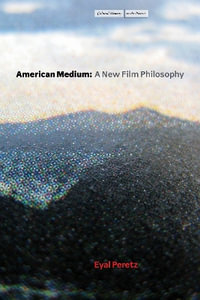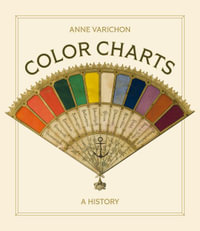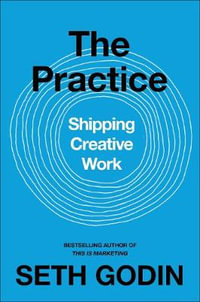This book revolutionizes the 1000-year old tradition that stems from the first commentaries on the Poetics by the Arabic scholars. (No commentary exists from antiquity or Byzantine times.) Starting with those scholars, Aristotle's treatise has always been thought to be about poetic-literary theory, with tragedy being its paradigm. Scott demonstrates, however, that Aristotle (c. 384-322 BCE) employs poiesis not in the way universally assumed until now, as "poetry," which the sophist Gorgias only coined in 415 BCE. Rather, Aristotle follows Diotima, who in the Symposium of Plato (c. 424-347) explains poiesis as mousike kai metra (typically "'music' and verses" but better "music-dance and verses"). One reason Aristotle employs the Diotiman and not the Gorgian sense of poiesis is that not one poem exists in the so-called "Poetics"; another reason is that the definition of tragedy includes music and dance (rhuthmos).
Scott subsequently demonstrates that Aristotle considers tragedy not to be a species of literature but one of dramatic musical theater that also requires dance and spectacle. Chapter 2 includes a revised version of Scott's "The Poetics of Performance" (Cambridge University Press, 1999).
The book also supplements his arguments of "Purging the Poetics" (Oxford Studies in Ancient Philosophy, 2003), reprinted here as Chapter 5, providing the additional reasons why Aristotle could not have written the clause with the words catharsis, pity, and fear in the definition of tragedy, as a number of internationally known ancient Greek specialists have already been accepting. As part of his reasons, Scott shows that, despite their recent, very admirable paleography, Leonardo Tar¡n and Dmitri Gutas too often mangle the philosophical interpretations and even some of the philology regarding the "musical" terms, especially when they try to sweep the problems of catharsis under the rug. Also, Tar¡n and Gutas never even recognize the Diotiman sense of poiesis that Aristotle uses, nor do they recognize the philosophical contradictions with keeping the katharsis-clause.
All of this allows a fresh and better reading of the treatise that even with its fundamental misinterpretations has been a major part of the foundation of Western literary, dramatic and artistic theory.
UPDATES & ERRATA: www.epspress.com/ADMCupdates.html
Contents
Volume 1 includes: Plato's meanings of poiesis as "music-dance and verse" and his use of rhuthmos often not as "rhythm" but "dance"; the importance of dance in the state for Plato; Aristotle's agreement with his mentor on the meaning of the musical terms and the requirement of dance not only in the Poetics but in the Politics, along with the proof that Aristotle considers tragedy to be a species of dramatic "musical" art, not literature.
Volume 2 is available at: www.amazon.com/dp/099970494X
It includes the issues of catharsis, pity, and fear, and a complete rebuttal of the only attempted rigorous reply (by Stephen Halliwell in Between Ecstasy and Truth, 2011) to "Purging the Poetics." This volume also contains: Aristotle's response to Plato without catharsis; comedy; whether or not the principles of "musical" dramatic theater can be applied to art forms like literature and cinema; the history of the Poetics with regards to the two fundamental misconceptions; Bibliography; and Index for both volumes. 300 pages. List: Hardcover $53; Softcover $39.
Industry Reviews
"There is no room for katharsis in the definition of tragedy as it occurs in chapter 6 of Aristotle's Poetics. The passage is corrupt. At least three scholars (PetruÅ¡evski, Freire, and Scott) have shown that intervention in the text is justified and necessary... I take it for granted here that katharsis in line 1449b28 cannot remain." -CLAUDIO WILLIAM VELOSO, "Aristotle's Poetics without Katharsis, Fear, or Pity," Oxford Studies in Ancient Philosophy, 2007. Veloso is the author also of Pourquoi la Po©tique d'Aristote? DIAGOGE [Why the Poetics of Aristotle? Intellectual Enjoyment] (August 2018, Vrin), with a Preface by Marwan Rashed.
"Scott is the first to thoroughly counter more than two thousand years of Aristotelian hermeneutics. He does this by re-analysing, step by step and comprehensively, a vast literature and gallery of authors hitherto considered indisputable points of reference, thus...affirming the entirely new interpretation (p. 29)... Although Scott's reading is supported by a growing number of affirmations worldwide, most of the specialists, with Stephen Halliwell in the lead, insist on repeating the old, misleading interpretations (p. 33)." -ANTONIO ATTISANI, "Rifare il principio: Il sentiero neodrammatico," in Il Pensiero: rivista di filosofia, Volume LVIII, 2019/1. 17-41; transl. George Ulrich.
"Scott's book is, I think, more important than Else's (whose problems he [Scott] answers much more neatly), which was perhaps the magnum opus of the last century... Everyone claiming to be interested in what Aristotle was really up to in that book [the Poetics] needs to read this one of Scott's." -GENE FENDT, Ancient Philosophy, Volume 39, Issue 1, Spring 2019: 248-252. [(Gerald]) Else's book is Aristotle's Poetics: The Argument, Cambridge: Harvard University Press, 1957.]

























